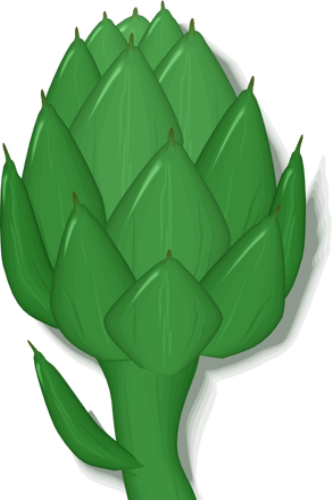Tigger's Green Paw
Artichoke
As with all plants, always check if you have any health problems that may be affected by growing any plants in your garden or yard you may be able to nibble on.
Animal Safety: Dogs: Yes Cats: Yes Rabbits: Yes
Free Grazing: In moderation
Lifespan: Perennial
About:
Artichokes are one of the oldest food known to humans; the historians believe the artichokes originated in the Mediterranean countries, possibly Sicily or Tunisia and the edible flower form was first recorded around 1400 in Italy.
It is not known who discovered the artichoke first. It was both the ancient Greeks and Romans that brought it to the Mediterranean from Egypt and north west Africa.
Artichoke like a warm, sunny, sheltered site in moist but well-drained soil.
they reach a height of around 1.5m tall and a spread of around 60cm.
There are around 50 varieties of artichoke.
Each plant can produce up to 10 artichokes per year and can produce for around five years.
The centre of the artichokes is a mass of immature florets, which is called the choke or beard which are inedible.
Dogs:
Dogs can eat artichokes either raw or cooked. Artichokes contain vitamin C, folic acid, potassium, niacin, and lots of antioxidants which can help prevent illness and support your dog's immune system, muscles, metabolism, and more. Artichokes may also help dogs with irritable bowels, although too much could cause bloat and gas.
Cats:
It would not harm a cat if they occasionally ate a small amount of artichoke, although they will still not thank you for feeding them fruit and vegetables.
Rabbits:
Rabbits can eat artichokes.
As with all food given to rabbits, it must be raw and fed in moderation. 


